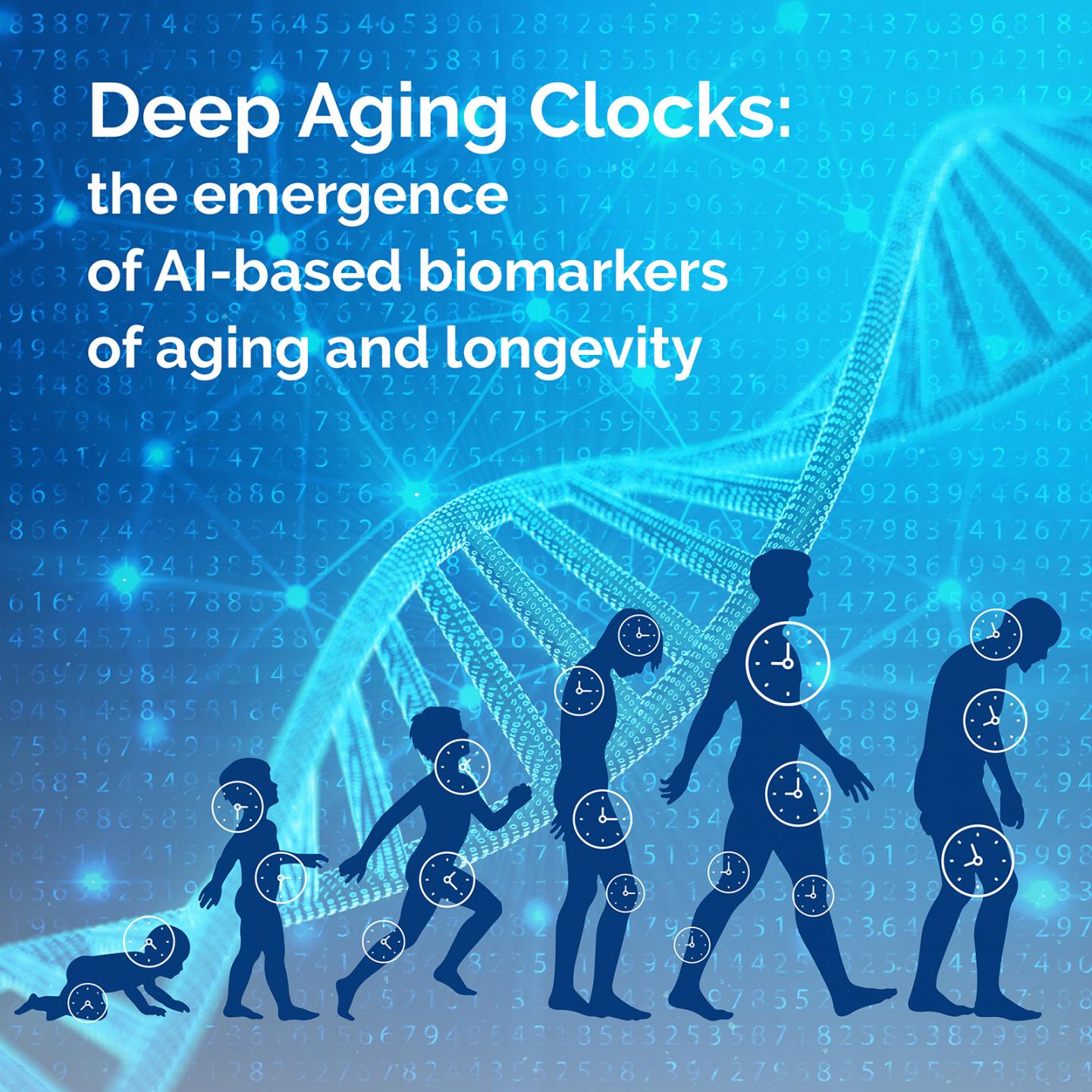The advent of deep biomarkers of aging, longevity and mortality presents a range of non-obvious applications

Credit: Insilico Medicine
July 3, 2019 – There are two kinds of age: chronological age, which is the number of years one has lived, and biological age, which is influenced by our genes, lifestyle, behaviour, the environment and other factors. Biological age is the superior measure of true age and is the most biologically relevant feature, as it closely correlates with mortality and health status. The search for reliable predictors of biological age has been ongoing for several decades, and until recently, largely without success.
Since 2016 the use of deep learning techniques to find predictors of chronological and biological age has been gaining popularity in the aging research community. Advances in artificial intelligence, combined with the availability of large datasets, have led to a boom in the field, increasing the variety of biomarkers that could be considered candidates as potential age predictors. One promising development that considers multiple combinations of these different predictors could shed light on the aging process and provide further understanding of what contributes to healthy aging.
In the paper titled “Deep Aging Clocks: The Emergence of AI-Based Biomarkers of Aging and Longevity” in Cell Trends in Pharmacological Sciences, Polina Mamoshina, Senior Scientist at Insilico Medicine, and Alex Zhavoronkov, the Founder of Insilico Medicine, summarise current findings on the main types of deep aging clocks and their broad range of applications in pharmaceutical industry.
“Humans are very good at guessing each other’s age using images, videos, voice, and even smell. Deep neural networks can do it better and we can now interpret what factors are most important. Very often when someone looks older than their chronological age, they are sick. A trained doctor can guess the health status of a patient just by looking at him or her. At Insilico we developed a broad range of deep biomarkers of aging that can be used by the pharmaceutical and insurance companies, as well as by the longevity biotechnology community. In this paper we describe the recent progress in this emerging field and outline a range of non-obvious applications,” said Alex Zhavoronkov, Ph.D, Founder and CEO of Insilico Medicine.
Deep biological aging clocks can be used for data quality control, biological target identification and even the evaluation of the biological relevance and value of various data types and combinations. The recent perspective on the value of human data recently appeared in Cell Trends in Molecular Medicine.
“Deep biomarkers of aging developed utilizing a variety of data types of aging are rapidly advancing the longevity biotechnology industry. Using biomarkers of aging to improve human health, prevent age-associated diseases and extend healthy life span is now facilitated by the fast-growing capacity of data acquisition, and recent advances in AI. They hold a great potential for changing not only aging research, but healthcare in general,” said Polina Mamoshina, Senior Scientist at Insilico Medicine.
###
For further information, images or interviews, please contact:
Contact: Klug Gehilfe
[email protected]
Please follow the link to read the article:
https://www.cell.com/trends/pharmacological-sciences/fulltext/S0165-6147(19)30114-2
About Insilico Medicine, Inc
Insilico Medicine is an artificial intelligence company headquartered in Rockville, with R&D and management resources in Belgium, Russia, UK, Taiwan, and Korea sourced through hackathons and competitions. The company and its scientists are dedicated to extending human productive longevity and transforming every step of the drug discovery and drug development process through excellence in biomarker discovery, drug development, digital medicine, and aging research.
Insilico pioneered the applications of the generative adversarial networks (GANs) and reinforcement learning for generation of novel molecular structures for the diseases with a known target and with no known targets. In addition to working collaborations with the large pharmaceutical companies, the company is pursuing internal drug discovery programs in cancer, dermatological diseases, fibrosis, Parkinson’s Disease, Alzheimer’s Disease, ALS, diabetes, sarcopenia, and aging. Through a partnership with LifeExtension.com, the company launched a range of nutraceutical products compounded using the advanced bioinformatics techniques and deep learning approaches. It also provides a range of consumer-facing applications including Young.AI.
In 2017, NVIDIA selected Insilico Medicine as one of the Top 5 AI companies in its potential for social impact. In 2018, the company was named one of the global top 100 AI companies by CB Insights. In 2018 it received the Frost & Sullivan Award accompanied with the industry brief. Website: http://insilico.
Media Contact
Klug Gehilfe
[email protected]




